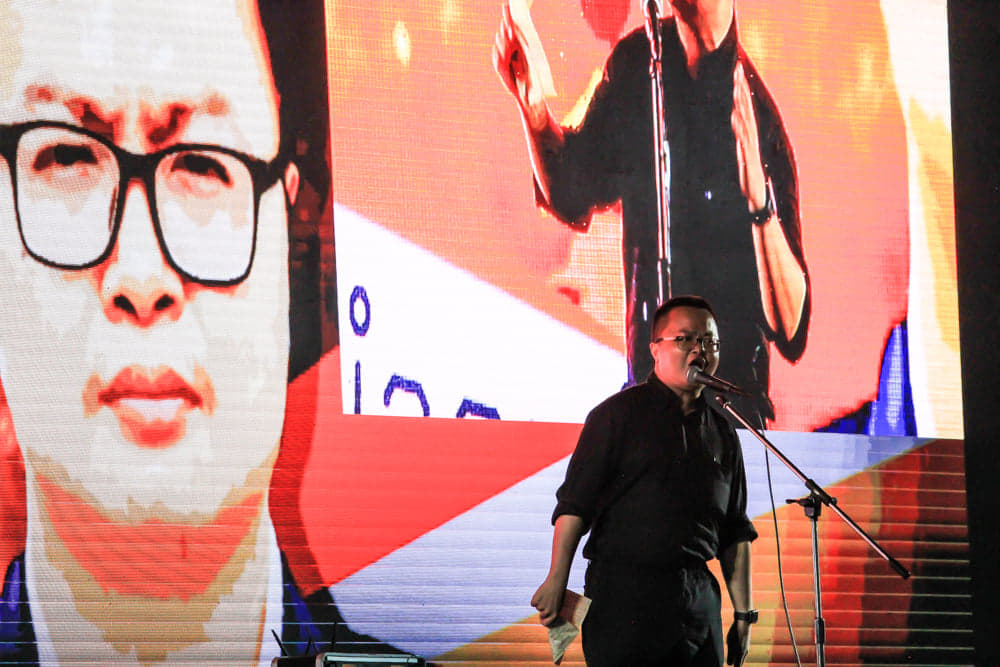The Constitutional Court ruled today that three prominent leaders of pro-democracy protests intended to overthrow the government headed by the king and backed by the military.
In a ruling announced at around 4pm, judges said movement leaders Arnon Nampa, Panusaya “Rung” Sithijirawattanakul and Panupong “Mike” Jadnok violated Section 49 of the Constitution by giving speeches in defiance of the Thai monarchy at two events in August 2020.
“They said I was overthrowing the regime, when all I asked for is reform,” Panusaya tweeted soon after the verdict.
The court ordered the three and their movement to stop pursuing these goals.
At the time of the ruling, #ReformDoesNotMeanOverthrow was a trending hashtag on Twitter in Thailand.
The decision makes clear the status quo will not tolerate discussion of the monarchy’s role in society as such questions will be deemed treasonous.

In a bid to prevent protesters gathering outside, the court at the Government Complex on Chaeng Wattana Road had ordered the area closed today, with attendance for the hearing limited to the accused and petitioner to “ensure peace and order.”
The complaint was filed by Nathaporn Toprayoon, who previously accused a now-defunct opposition party of a bizarre conspiracy theory involving the so-called Illuminati. It originally named eight defendants.
The constitutional clause in question reads: “No person shall exercise the rights or liberties to overthrow the democratic regime of government with the King as Head of State.”
On Aug. 3 and Aug. 10, Arnon blew up decades of taboo with a speech confronting the modern role of the monarchy in society and calling for its powers to be curtailed. On Aug. 10, Mike discussed the monarchy’s role again, while Rung proposed a now-famous 10-point manifesto calling for its reform – which immediately brought down the fury of the state upon her.
The rise of voices calling for royal reforms, previously unthinkable in the public sphere, led the military-backed government to revive prosecutions under the lese-majeste law, which had been set aside for several years. Originally designed to shield the monarch and his immediate family from criticism, it has been used to jail those deemed to have insulted the royal institution for up to 15 years per offense.





Reader Interactions